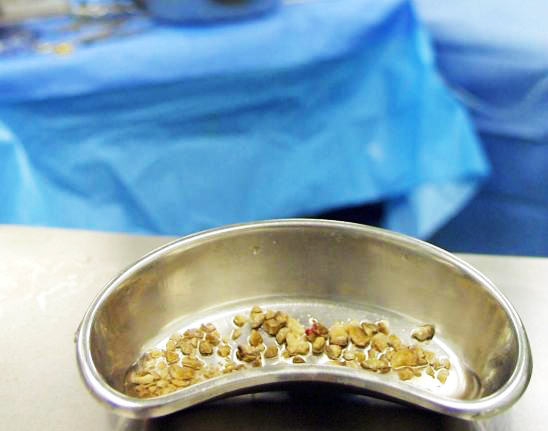What causes stones to form?
The crystallization of minerals in concentrated urine causes stones to form.
There are four types of stones, including:
- Uric acid stones
- Calcium-oxalate stones
- Struvite stones
- Cystine stones
Calcium-oxalate stones are the most common, and they form due to an increase in oxalate intake, certain medications, problems with your kidneys, or your genetic predisposition.
You may be able to prevent the formation of stones by:
- Drinking more than 80 ounces of water a day
- Limiting your intake of oxalate-rich foods such as rhubarb, beets, and nuts
- Eating more calcium-rich foods and limiting the need for calcium supplements
- Reducing protein and salt intake
What are the symptoms of kidney and urinary stones?
You may not know you have kidney or urinary stones until one starts to make a move. Common symptoms include:
- Pain during urination
- Pink, red, or brown urine
- Increase in urination or an increase in urgency
- Pain in your back or on your side
- Pain that travels down your abdomen
- Nausea, vomiting, or fever
How are kidney and urinary stones diagnosed?
There are a number of tests we may recommend, such as:
- Blood or urine test
- Imaging to see the stones in your urinary tract
- Analysis of a passed stone
What treatments are available for kidney and urinary stones?
Treatment for your kidney stones may vary depending on the type and size. But increasing your water intake and over-the-counter pain relievers may be a good place to start.
If needed, we may prescribe medication that relaxes the muscles in your ureter to help you pass the stone.
Larger stones may require more invasive procedures such as:
- Surgery to remove the stones
- Sound waves to break up the stones
- Ureteroscope to break up or grab a stone from your ureter
Please call our office to schedule an appointment so we can discuss the available treatment options with your kidney stones.

